Interview with Philippe Fabry (French historian, geopolitologist and essayist) to mark the publication of an English translation of one of his major works: "Les impérialistes revanchards: Poutine, Hitler, Bonaparte et les autres...".
Patrick Edery: What do Hitler, Bonaparte and Putin have in common?
Philippe Fabry: All three were members of the security forces of a fallen imperial power plunged for a decade in revolutionary chaos, who rose to power on the promise to restore order and their country's lost standing. In order to fulfil this promise, they had to confront all the adversaries who had defeated their country in the preceding great conflict (France's Seven Years' War, Germany's First World War, Russia's Cold War).
However, besides the parallels between those characters, we need to understand that what I call revenge imperialism is a powerful collective phenomenon. It is this phenomenon that gives rise to this kind of characters, brings them to power, applauds their first audacities and supports their aggressions, right up to the point of total defeat, with the population traumatised by the memory of the previous defeat and its chaotic consequences. We believed that the Russian regime was fragile, as it had been in the USSR times, and that it would fall with economic sanctions and a stalemate in Ukraine in the same way as it had in Afghanistan. So we waited for this to happen instead of immediately taking the drastic measures needed to get our military-industrial complex back into fighting order, which would enable us to support Ukraine well beyond Russia's military capacity. This error of judgment is regrettable, and very unfortunate for Ukraine and beyond that country, for the whole of Europe. We should have understood from the outset that we were not dealing with an ageing regime, or a simple personal dictatorship driven by the whims of the tyrant, but with a systemic revanchist dynamic that makes Russia capable of mobilising strongly for a conflict that it perceives in an eschatological dimension: either victory and restored empire, or disappearance.
Why publish this in English?
The point of my research approach is to identify deterministic patterns in history, in particular the underlying movements of the collective psychology that preside over the birth of nation states, stripped of any imperial ambitions. This is precisely the outcome after the defeat of figures like Napoleon or Hitler. Such an approach does not allow us to predict individual events like the success of a specific military operation, but it enables us to anticipate the psychological state, and therefore the decisions, of the players. For example, this was how I was able to anticipate Russia's large-scale invasion of Ukraine, and the Russian regime's resistance to the failures of its initial operations.
So, over and above the purely intellectual interest in discovering these deterministic mechanisms and recurring patterns in history through my work, there is an obvious strategic interest in being able to anticipate Vladimir Putin's desire to escalate (or that of the other countries I mentioned, such as Iran or China, with dynamic different from that of Russia), his regime's mobilisation capacity and the resilience of its power structures. This capacity is decisive if we are to avoid making strategic errors of judgement that could be extremely damaging in the medium term for the West and the whole world. And the first danger, which I have already touched on, is what I call syndrome of the previous war victor: this is precisely misinterpretation by the enemies of the revanchist imperialist of his nature, the nature of his regime and his ambitions. The war in Ukraine was conceived by Russia as a confrontation with NATO, aimed at getting the West to accept the terms of the agreements proposed by the Russians on 17 December 2021. The West thought it could win this confrontation by adopting the same strategy against Russia as it had employed against the USSR in the 1980s: sanctions and proxy war. They thought that Russian regime would not survive and Russia would implode like the USSR. In this they made the same mistake as the British, who thought they could get Napoleon's French army bogged down in Germany in 1805-1806 as they had managed to do during the Seven Years' War, and the Allies in 1939-1940, who thought they could replay trench warfare under better conditions, using the Maginot Line. The former led to the disasters of Ulm, Austerlitz and Jena, the latter to the encirclement of Dunkirk and the fall of France. In the same vein, the Romans thought they could win against Hannibal's Carthage by taking advantage of their mastery of the seas, only to be surprised by Hannibal's arrival over the Alps. And these disasters put the enemies of the vengeful imperialist in a difficult position that could only be remedied by a long and difficult war. I fear that the West may be setting itself up for the same disappointment by failing to measure the capacity of Russian power to escalate and mobilise - a good example being the production of munitions, where the Russians are proving twice as capable as Western intelligence had envisaged, producing more than the whole of NATO put together. By skimping on the efforts needed to prepare for war, because they underestimate the potential of the Russian regime, the West is exposing itself to a strategic disaster. I think that the seriousness of the warning justifies giving it, through translation into English, the capacity to spread among Western opinion and leading political circles, particularly in Europe, who earlier failed to believe in the possible invasion of Ukraine.
Your analysis for the next 5 years?
I don't believe in a rapid military defeat for Russia, for reasons that I already mentioned last year just before Russia’s decision to partially mobilise: Vladimir Putin's regime will not implode, and has not yet reached the end of its capacity to mobilise its population and its economy. Even if the Ukrainian offensive finally made significant progress, Russia would escalate again, by additional mobilisation or otherwise.
What's more, Russia has vast resources in raw materials and a first-rate military industry. We should remember that the isolated Iran of the 1980s was able to wage war against Iraq, supported and armed by practically everyone for eight years, with a much smaller strategic base. The most likely hypothesis is therefore that today's Russia is at least capable of the same performance in Ukraine, which, even if the Russian army continues to perform poorly, may suffice to expose Europe to unbearable levels of tension: inflation, energy costs, not to mention the Russian strategy of destabilisation in Africa to provoke waves of migration and drive up populist anti-immigration parties. As the latter are often more complacent with Russia than Europe's ruling elites, this could lead to a political disaster in Europe on a par with the disasters of Austerlitz and Dunkirk suffered by Napoleon's and Hitler's adversaries. We could face break-up of the EU, paralysis of NATO, and several countries becoming neutral or subservient to Moscow. It would take years for the United States to reduce Russian influence in Europe, with the risk of war striking other parts of the continent: the Baltic States, the Balkans, etc.
To avert this danger, it would be advisable to speed up considerably Europe's military-industrial reorganisation, but also take a much harder line on migration policy and step up our efforts to develop the continent's nuclear energy in order to solve the problem of energy dependency.
Find out more content on Philippe Fabry's YouTube channel: Histheorist - Philippe Fabry - YouTube
Read also
Would De Gaulle be pro-Russian today?
This question may seem incongruous to many of our European readers for whom the General is the symbol, like Churchill, of resistance to invasion, of refusal to submit to the law of the strongest. The Second World War showed us that there are two schools of thought when faced with an invader.
Patrick Edery
Nicolas Sarkozy and the Russian Party of France
Let's look at the "Sarkozy case" for a moment, as it is so edifying.
Patrick Edery
It is time for Paris to stop believing the Russian anti-Polish narrative and clean up its act
Since Russia's invasion of Ukraine and the solidarity shown by Poles towards Ukrainians, negative articles against Warsaw in the French press have considerably decreased.





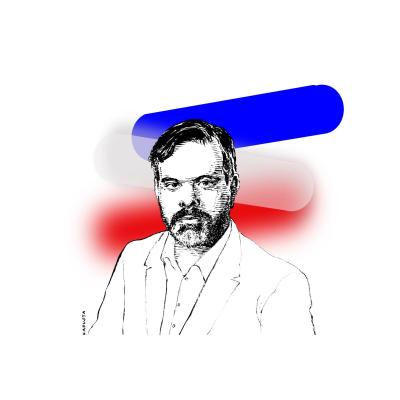
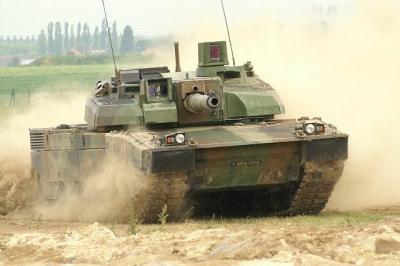

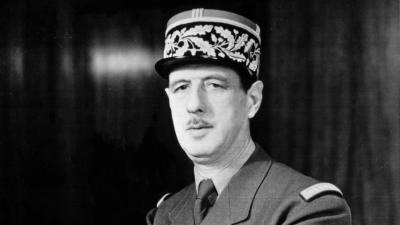

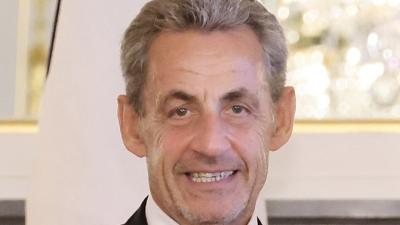

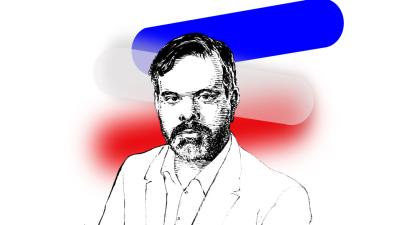

Comments (0)